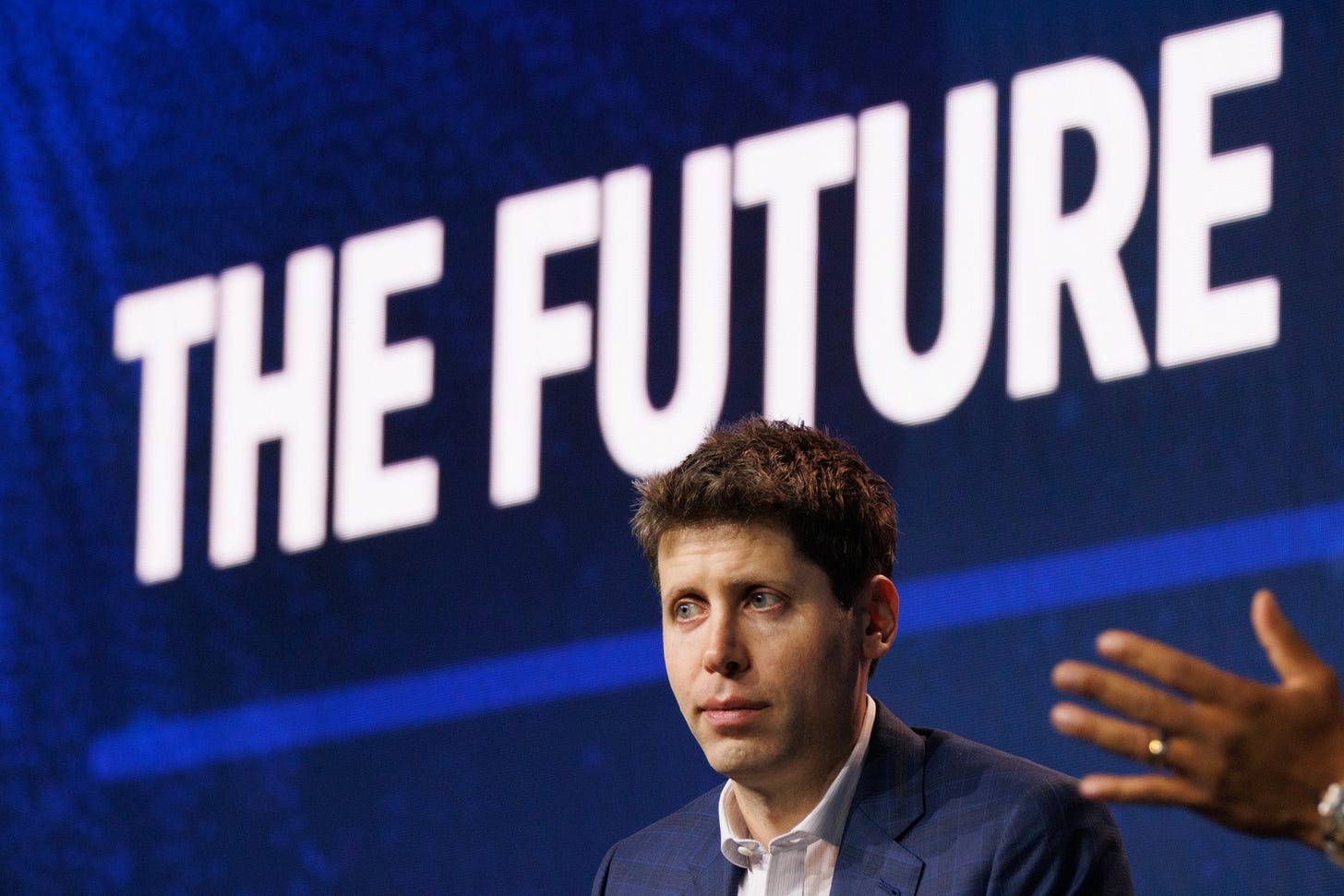AI: OpenAI Priorities for 2024
...top questions for the AI pioneer this year
We left 2023 with an extraordinary AI Tech Wave ignited by OpenAI’s ChatGPT moment in November 2022. And of course one of the most dramatic moments and reversals in tech company governance since the ouster of Steve Jobs from Apple in 1985.
This time, we saw the dramatic reinstatement of OpenAI Founder/CEO Sam Altman atop a company that had one of the most dramatic origin stories in technology itself. It involves of course the founders of seminal technology companies like Google and Tesla, arguing over a fireside chat in 2015. And that story still powers much of the debate in AI going into 2024, between AI Speed vs Safety, ‘accel’ vs ‘decel’.
At least in the first quarter of 2024 and beyond, OpenAI has three key priorities amongst a host of other ‘must-do’ priorities:
Establish an Expanded Board and Governance Structure, especially with its critical partner Microsoft more intricately involved this time around. This already includes a just appointed Microsoft veteran Dee Templeton, as an OpenAI Board Observer, along with other board appointments to come. The Information reports possible new members like Scale AI’s Alex Wang, and Nat Friedman, the co-founder of Github, and former Microsoft executive. Expect more names to surface shortly in the coming weeks.
Finalize its capital raise requirements to accelerate its next generation LLM AI deployment with GPT-5 and beyond. This includes both the secondary sale led by VC Thrive Capital at an $86 billion plus valuation, and a reported additional primary fund raise at over a $100 billion valuation. Additionally, there are adjacent AI priorities for OpenAI and Sam Altman with potential AI device ventures with former Apple design chief Jony Ive, as well as alternative AI chip fab project code-named Tigris, with investor/partners like G42 in the Middle East, and elsewhere.
Solidify its Product deployment plans around multimodal ChatGPT, and its application and platform plans around its just launched ChatGPT store, as well as fostering wide and deep Enterprise adoption of OpenAI’s API driven AI products and services. That latter bit has to occur with picture perfect cooperation and synchronization with its aforementioned critical Partner Microsoft. Especially given Microsoft’s own AI imperatives with AI Copilot priorities with its own Enterprise customers, and across its Windows, Office 365, and Github franchises.
The stakes are existential, despite OpenAI’s extraordinary story and record to date. As Axios highlights in “The Persistent Enigmas of OpenAI”:
“Tech history tells us that the company that kicks off a boom isn't always the one that survives to reap rewards.”
“Netscape's 1995 IPO ushered in the internet era, but by 1998 the browser pioneer was on the ropes. In 1999, it got bought out by AOL, which also crashed and burned — leaving Google and Facebook to harvest the web's profits.”
“Similarly, before there was an iPhone, there was Blackberry. But despite the loyalty many users felt for the Canadian innovator's products, they became footnotes once Apple's touch-screen wonder took off.”
“Yes, but: Right now, OpenAI has a broad customer base that's willing to pay $20 a month to use ChatGPT. And it has everyone's attention.”
“The bottom line: The startup at the crest of each new wave in tech can end up on top of the world — or buried in an undertow.”
And let’s not forget the ‘Tortoise vs the Hare’ competition that also has the world’s attention in terms of Google vs OpenAI/Microsoft. I’ve already weighed in with my prognostications on that front for now.
Regardless, OpenAI and Sam Altman have a heavy load of to dos as we kick off 2024. It’s going to be important to watch and understand the OpenAI possibilities in so many dimensions, both narrow and broad. Stay tuned.
(NOTE: The discussions here are for information purposes only, and not meant as investment advice at any time. Thanks for joining us here)




